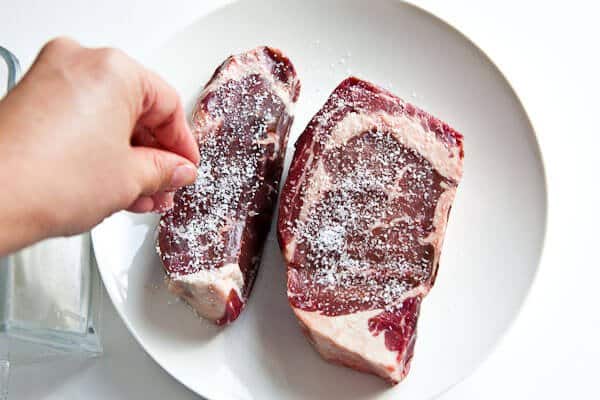In fact, the little things matter much more than we think. When applied to cooking, one of those little things is salt. Someone is surprised if, after sitting at the table, guests ask for a salt shaker (already salted), someone, on the contrary, does not salt at all (products contain salt), everyone is concerned about their health, and few people remember that salt actually has two uses.
Firstly, it is a carrier of a salty taste – one of the five main tastes that we distinguish (the rest is aromas, we can smell them with our nose, remember how insipid food seems when you have a cold).
Secondly, and most importantly, salt is a flavor enhancer. Yes Yes. Just like monosodium glutamate, which is now commonly feared, table salt enhances the natural flavor of the foods it is seasoned with.
And here everything is not so simple. However, to whom I am telling – if you have ever entered the kitchen, you know as well as I do that the tastes of a dish salted during the cooking process and the same dish, but salted already on the plate, differ dramatically. The first is rich, full and voluminous, the second is bland and pale (although the same amount of salt is added). This rule applies to all products.
But for some reason, steak is often considered an exception. How many times have I read and heard on TV – they say, in no case should a steak be salted before cooking: from this, moisture appears on its surface, which will not allow you to “seal” the juices inside and you will succeed not a steak, but complete nonsense.
It seems that everyone studied chemistry with physics at school, and simple observations confirm: moisture on the surface of the meat, indeed, appears. This is a scientific fact – but everything else that is written next does not follow from it. First, there is no “sealing”. In our enlightened age, the theory that a piece quickly fried on all sides retains juices better has been refuted: in fact, such a piece loses juices even faster and more willingly, but the myth of “sealing” continues to be successfully replicated by all sources related to cooking.
Secondly, a small amount of juices that have emerged on the surface of the steak does not interfere with frying it normally – provided that you have warmed up the pan properly, they will evaporate in a matter of seconds. So salt or not salt? The answer is unambiguous: salt. I usually do this: grease the steak with olive oil, salt (despite the fact that salt, as they say, draws juices out of the meat), pepper (despite the fact that the pepper, as they say, burns out almost instantly) and leave for half an hour, lie down and think about your behavior. During this time, the salt has time to penetrate into the meat, and pepper – to give it a “peppery” aroma. Then I fry it – if it’s good meat, for example, some Australian ribeye, then I just turn it over every 20-30 seconds to evenly fry it.
This method is fully described here: Another way to cook a steak This steak turns out to be soft, juicy, with a bright and rich taste, in general, what you need. If you have to deal with beef of less high quality (and price), then I either cook a tenderloin steak with a red wine sauce, or I make a steak in a souvid (read the recipe for the tastiest steak in your life to get a complete understanding of the technology) – but even in this case, I fearlessly salt the meat before frying, sometimes long before. Does the meat lose juices in this case, as they write about it?
Maybe. But let’s not forget – our goal is not to get meat that retains the maximum amount of moisture, but a delicious steak that will delight and be remembered for a long time. There is no catastrophic loss of juices in any case – this is not the case when an extra pinch of salt will ruin the dish, so salt the steaks, and do not be afraid.
Or at least fry two steaks, salting one before cooking, and the other after – and compare the taste and juiciness. When you are ready, I recommend, in addition to the links above, study the articles on how to cook a perfect steak, how to determine the degree of roasting of meat and the ripening of meat as a household section. magic, and prepare chimichurri sauce for the steak. And you will be happy.










